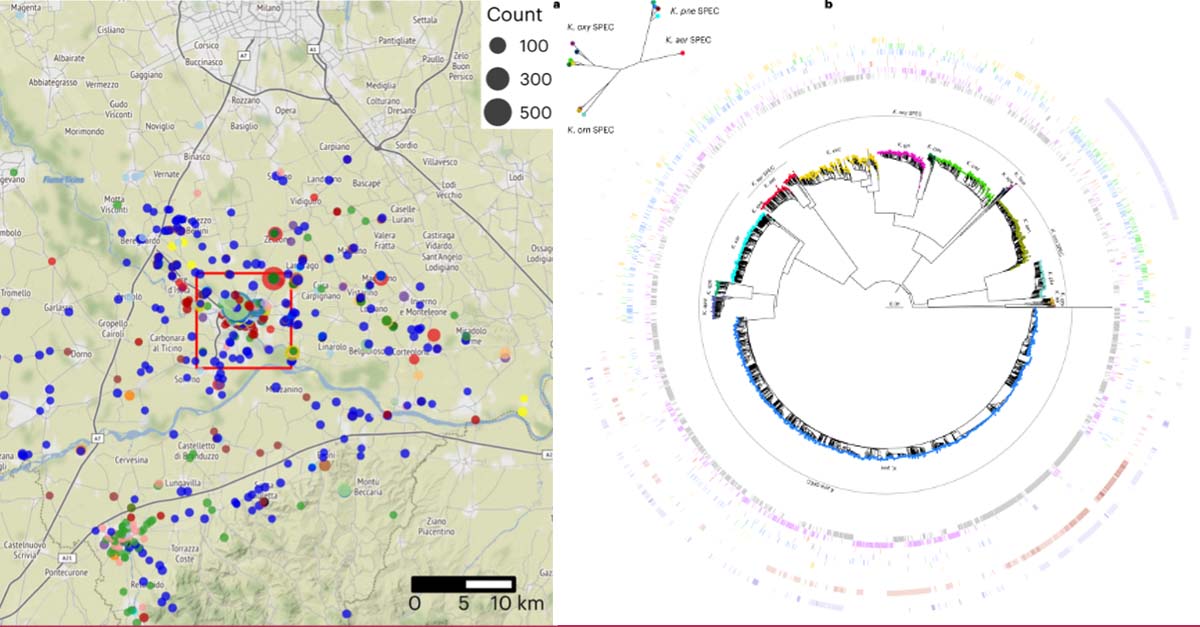(English below – Antibiotic-resistant Klebsiella is confined to hospital environments) La Klebsiella è un batterio patogeno particolarmente diffuso negli ambienti ospedalieri dove può portare gravi infezioni all’apparato respiratorio e digerente e alle vie urinarie. Queste infezioni diventano spesso mortali quando il ceppo batterico risulta essere resistente agli antibiotici. La capacità di sfuggire alle terapie colloca Klebsiella tra i più importanti patogeni antibiotico-resistenti, causa di decine di migliaia di morti all’anno negli ospedali di tutto il mondo.
Il Prof. Davide Sassera, del Dipartimento di Biologia e Biotecnologie dell’Università di Pavia, grazie a una collaborazione con il Policlinico San Matteo, l’Università di Milano e un team internazionale di ricercatori inglesi, francesi e norvegesi, ha pubblicato sulla prestigiosa rivista «Nature Microbiology», una ricerca che parte dal sequenziamento di oltre 3.000 genomi di Klebsiella campionati nella provincia di Pavia.
Questa ricerca ha esaminato gli isolati in ambito clinico e ambientale. Il più importante risultato emerso è la separazione tra il comparto clinico e ambientale: le resistenze agli antibiotici risultano essere confinate all’ambiente ospedaliero, e non originare dall’ambiente o dagli allevamenti.
[Immagini: a sinistra “Geographical summary of the whole sampling area”; a destra “Phylogenetic tree with metadata and sample and source distributions”]
***
ANTIBIOTIC-RESISTANT KLEBSIELLA IS CONFINED TO HOSPITAL ENVIRONMENTS
Klebsiella is a pathogenic bacterium that is particularly widespread in hospitals where it can lead to serious infections in the respiratory and digestive systems and in the urinary tract. These infections often become fatal when the bacterial strain is resistant to antibiotics. The ability to escape treatment places Klebsiella among the most important antibiotic-resistant pathogens, cause of tens of thousands of deaths a year in hospitals around the world.
Prof. Davide Sassera, of the Department of Biology and Biotechnology of the University of Pavia, thanks to a collaboration with the Policlinico San Matteo, the University of Milan and an international team of British, French and Norwegian researchers, published in the prestigious journal «Nature Microbiology», a study that starts from the sequencing of over 3000 Klebsiella genomes sampled in the province of Pavia. This research focused on the potential overlap between isolates in the clinical and environmental settings.
The most important result is the separation between the clinical sector and the environment: resistance to antibiotics appears to be confined to the hospital environment and not to originate from the environment or from farms.




